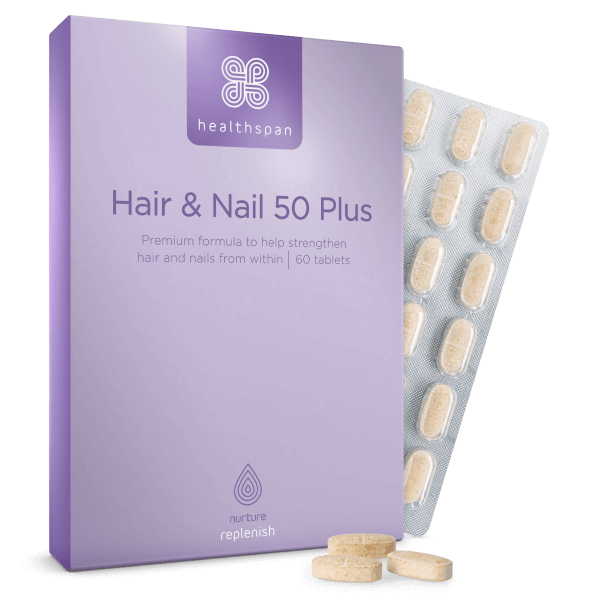Nobody chooses to lose their hair and if it happens it can be emotionally and psychologically distressing. Your hair is also a good barometer of your health and if it starts falling out in clumps or patches this could be a sign of an underlying health problem.
NHS England estimates around 50 per cent of women over the age of 65 suffer female pattern baldness (genetic or hormonal hair loss) and one in eight women under the age of 35 is suffering with hair loss according to research from trichologist Philip Kingsley. The International Society of Hair Restoration Surgery report 40 per cent of men will experience serious hair loss by the age of 35. Physically you can survive just fine without it, but psychologically hair can be such a big part our identity that losing it can be hugely distressing. The bald truth is, however, because most hair loss is influenced by genetics, ageing and/or hormones, we don't always have a huge amount of control over it.
Hair loss can also be the sign of an underlying health condition, including anaemia, alopecia, thyroid problems, diabetes and lupus. Other factors that can trigger it include stress, dramatic weight loss, trauma, pregnancy, some cancer treatment and nutritional deficiencies. Poor nutrition is a major factor in hair loss and helping to correct any nutritional shortfall can go some way to slow it down and possibly even stop it.
Brushing up on nutrition
Your food should provide the nutrition you need for a full, healthy head of hair and eating a varied diet with a wide range of vitamins including A, C, D, E, K and the vitamin B complex group should furnish you with what you need. One essential hair-friendly food is protein: hair is made of protein and if you are not getting enough this can cause your hair to become dry, brittle, weak, thin and potentially fall out. Try to include some form of protein like eggs, fish (particularly omega 3-rich oily fish like salmon; omega 3s are found in the cells that line the scalp and can keep your scalp and hair healthy), poultry, lean meat, cheese, yogurt and nuts and seeds in most of your meals.
Praise Bs
A lot has been written about the benefits of B vitamins on hair health. While there is no real evidence to suggest that any one vitamin or combination of them can help with something like male or female pattern baldness, for example, which is largely genetic they could help with intermittent baldness or hair loss like alopecia. There is some research to suggest biotin (vitamin B7 sometimes called vitamin H) could possibly reduce hair loss, although the evidence remains largely inconclusive.1, 2
It is known that smoking and impaired liver function can lead to a deficiency of this nutrient and many women also develop a deficiency during their pregnancy.3 To get enough from food, good sources include eggs, bananas, nuts and nut butters, cauliflower, liver and sardines. Another in the B vitamin group, Vitamin B5 (pantothenic acid), is thought to stimulate hair growth so aim to include foods that contain it including beef, chicken, avocado, chicken and eggs.
Vitamins C, D and E
There is evidence to suggest that vitamin C (found in citrus fruits, kiwis, peppers, spinach and tomatoes) helps to fight oxidative stress4 (which over time can leave cells and tissues unable to function properly) that can contribute to hair thinning. It has been well documented that vitamin D deficiency is commonly found in people with alopecia areata.
Vitamin D is only found in small amounts in foods like oily fish, eggs and fortified foods but we should be able to get what we need from the action of direct sunlight on our skin. The fact that the UK tends to be starved of sun for around six months of the year can cause us to become low in vitamin D and should benefit from supplementation.
Vitamin E has long been recognised for its ability to improve both hair and skin. This vitamin found in almonds, wheatgerm, kale, spinach and vegetable oils contains antioxidants known as tocotrienols which are thought to keep the scalp healthy.

Replenish Hair & Nail 50 Plus
Advanced formula to strengthen mature hair and nails
- Specially formulated for peri and post menopausal women
- Soy isoflavones, coQ10, and natural grape seed and bamboo extracts
- Proven beauty micronutrients biotin, selenium, zinc and more
Stress-free tresses
If you are not getting a balanced and varied diet with these key hair-healthy nutrients a multivitamin or specific hair supplement, although not a substitute for healthy eating, can plug that nutritional gap giving you the full spectrum of daily nutrients in one hit. Getting your recommended daily intake of vitamins and minerals should also help to keep you generally healthy and more able to withstand stress, another hair loss trigger.
Regular exercise and relaxation techniques like mindfulness can also help. It might seem obvious, but care for your hair from the outside too, wash and condition it regularly; avoid styles that create too much traction like tight ponytails or buns (hair loss conditions can be aggravated by constantly pulling your hair back tightly) and limit your use of damaging heated hair appliances.






